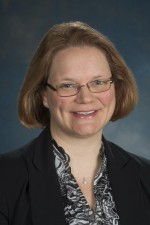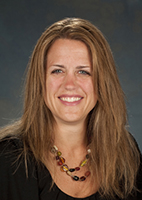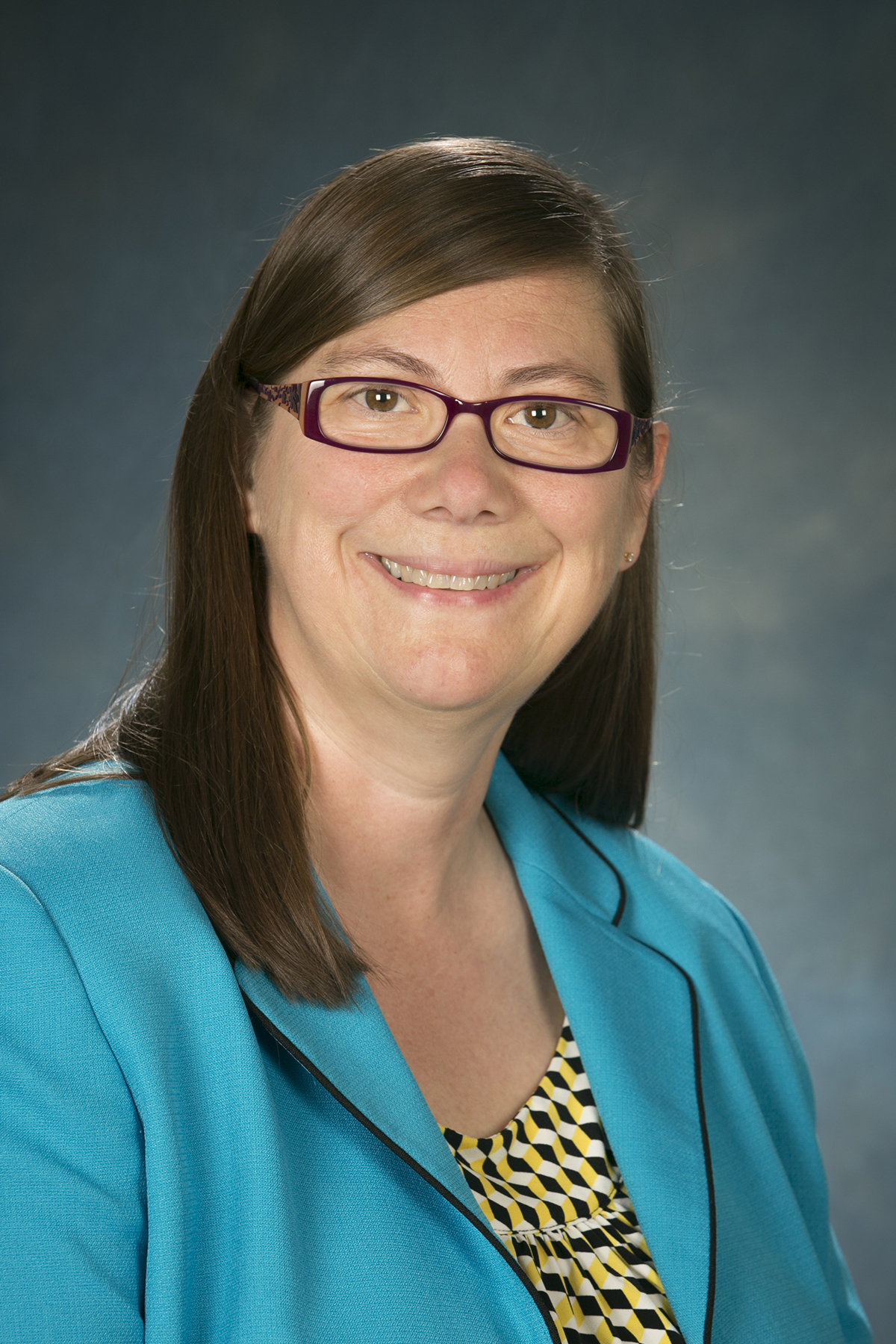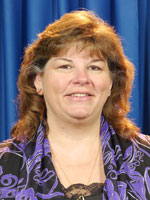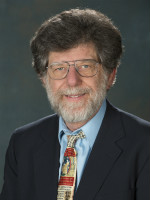Principal Investigator: Belinda Gimbert, Center on Education and Training for Employment (CETE)
Co-Investigator: Robert Mahlman, CETE
Project Dates: 07/01/2015 – 06/30/2016
Anticipated Total Award Amount: $99,184.80
Project Sponsor: Ohio Department of Education
Delivery and tracking of IPTI modules
- Manage the delivery web-based IPTI using Moodlerooms and address IPTI list of open tasks and questions in Google Docs
- Participate in implementation meetings with ODE for the pilot testing of the IPTI courses within the Moodlerooms environment.
- Monitor the IPTI courses within the Moodlerooms environment
- Monitor the MoodleRooms features that affect the process, reporting and setting up the course admin role
- Track the IPTI applications’ registration and progress through the IPTI modules
- Monitor the IPTI assignment submission, grading, and feedback processes
- Grade IPTI registrants’ assignments and provide feedback
Principal Investigator: Jacqueline Goodway, Human Sciences & Crane Center for Early Childhood and Research and Policy (CCEC)
Co-Investigator: Laura Justice, CCEC
Project Dates: 09/30/2015 – 09/29/2017
Anticipated Total Award Amount: $25,000
Project Sponsor: Administration on Children, Youth & Families; US Department of Health and Human Services
An integrated early literacy and motor skills curriculum: The effects on letter knowledge, phonological awareness, and fundamental motor skills in Head Start preschoolers
Head Start programs serve nearly one million preschool children who are at risk for delays in the development of critical school readiness skills due to their low-socioeconomic backgrounds. This study will address two important risk factors: delays in early literacy skills and delays in fundamental motor skill development. Both impact school readiness and later academic performance and health outcomes in children served by the Head Start program. Drawing from evidence-based effective intervention principles in early literacy and motor skill development, this study will examine the efficacy of the Reading and Motor Program for Preschoolers (RaMPP). RaMPP is a promising integrated curricula model designed to improve child outcomes in early literacy skills and motor skills for young children in Head Start. The present study will serve as a rigorous investigation of the efficacy of the RaMPP intervention using a two-group, quasi-experimental design with a RaMPP intervention group (3 classrooms, n = 54) and a Business as Usual control group (3 classrooms, n = 54). The RaMPP intervention will be administered by the researcher in a group setting over a 9 week period for 30-35 minutes per day, two days a week, during the regularly scheduled physical activity time in the school day. The control group will receive Business as Usual which consists of well-equipped free play. Hierarchical Linear Modeling will be conducted to examine the influence of RaMPP on the early literacy outcomes of phonological awareness and letter knowledge, and the motor outcomes of locomotor and object control skills. It is anticipated that the RaMPP group will have better motor and literacy outcomes than the control group. This study has implications for Head Start policy and curriculum and preservice teacher training and inservice teacher professional development.
Principal Investigator: Deborah Grzybowski, College of Engineering
Co-Investigator: Tiffany Wild, Department of Teaching and Learning
Project Dates: 08/16/2015 – 06/30/2016
Anticipated Total Award Amount: $301,108
Project Sponsor: Ohio Department of Education; US Department of Education
Engineering education for students with visual impairments (EEVI) project
Engineering Education for Students with Visual Impairments (EEVI) is a two-year professional development program for teachers of students with visual impairments (TVI), targeting grades 5-12 focused around bio-engineering. The program goals are to 1) Increase the science, math, and engineering content knowledge for TVIs; 2) Increase TVI’s capacity to teach science, math, and engineering concepts to students with visual impairments (VI); 3) Increase TVIs efficacy in science, math, and engineering; 4) increase TVIs capacity to make modifications and accommodations for students with VI to pre-existing science, math, and engineering lesson plans; and 5) Improve students’ with VI achievement in science, math, and engineering.
The first year of the program is comprised of a 120-hour professional development that includes an asynchronous online course in science, math, and engineering content and education for students with VI, 15 hours of face-to-face contact with a scientist and science educators in the classroom, two 5-hour Saturday face-to-face sessions, and a 40-hour summer institute with an additional 10 hours devoted to lesson planning for dissemination.
The second year will allow for implementation of the bio-engineering unit developed during the professional development and summer institute in Year 1. Year 2 will also include research of student knowledge, research of teacher’s knowledge and efficacy, as well as a similar professional development schedule in another topical area in engineering.
Partners for the program include the Ohio State School for the Blind, the Ohio Resource Center, Engineering Education Innovation Center at The Ohio State University, Department of Teaching and Learning at The Ohio State University, Northern Illinois University Visual Disabilities Assistive Technology Training Center and STEM-VI Mathematics Research Laboratory at the University of Alabama in Huntsville.
Principal Investigator: Laura Justice, Crane Center for Early Childhood Research and Policy (CCEC)
Project Dates: 08/15/2015 – 08/15/2016
Anticipated Total Award Amount: $429,000
Project Sponsor: City of Columbus
Schoenbaum Family Center School for Early Learning preschool expansion grant
The purpose of Early Start Columbus funds will be to secure access to high quality, full-time, full-year early childhood education for 30 children in the Weinland park community and immediate area who have not previously had access to enrollment in SFC’s high quality, early childhood school. Outcomes will be measured by child attendance, early referrals as a result of child ASQ screenings upon enrollment and child improvement on SFC progress monitoring tools such as the Get It, Got It, Go, Letter Name and Letter Sound Short Forms. Outcomes will also be examined with regards to child assessments including the state Early Learning Assessment and Brigance IED III, and parent involvement and engagement in their child’s education.
Principal Investigator: Robert Mahlman, Center on Education and Training for Employment (CETE)
Co-Investigator: James Austin, CETE
Project Dates: 07/01/2015 – 06/30/2016
Anticipated Total Award Amount: $1,000,000
Project Sponsor: Ohio Department of Education
Technical testing project (Part 1)
• Consult with ODE to develop a common RFP for all competitive grants (not to exceed nine per fiscal year);
• Provide consultation regarding the ODE Comprehensive Continuous Improvement Plan (CCIP) district planning tool;
• Develop a tiered approach to monitoring to include program progress and fiscal reports, periodic desk audits and on-site reviews;
• Develop a calibration instrument and complete scoring, calibration and interpretation of grant reader scores by using a theory-based program;
• Calibrate proposals read by each reader and estimate reader reliability;
• Provide outcome of data collection and work with ODE to calibrate all tools used in the scoring of competitive grants;
• Work with each program manager regarding the scoring of applications, final analysis and data interpretation.
• Consult with ODE regarding data elements involved in the District Efficiency Rating (DER) scale
Principal Investigator: Kathy Malone, Department of Teaching and Learning
Co-Investigators: Lin Ding, Department of Teaching and Learning; Kathleen Harper, College of Engineering; Karen Irving, Department of Teaching and Learning; Zakee Sabree, College of Arts and Sciences
Project Dates: 08/16/2015 – 06/30/2016
Anticipated Total Award Amount: $241,231
Project Sponsor: Ohio Department of Education; US Department of Education
Modeling biology instruction: Leaders in science and engineering (MoBILiSE)
The two-year research study aims to: apply research based pedagogical teaching techniques and content knowledge in biology, modeling and engineering to effect teacher pedagogical content knowledge (PCK); increase teachers’ epistemological perceptions about biology and engineering and self-efficacy; increase student content knowledge in biology, science models, modeling, and engineering; may improve student attitudes towards biology and engineering; and increase students’ attitudes towards engineering and scientific practices. This study will expand the research into how students’ conceptual understanding of secondary biology changes due to exposure to models and modeling in the biology classroom.
The first year of the project is focusing on the development of the secondary level model based biology curriculum using design-based methodology. As the development team constructs each of the five model-based units making up the full year course, the three pilot teachers utilize the curriculum in their classrooms. Based upon teacher input, the development team revises each unit in preparation for the second year of teacher training. During the summer of 2016 sixty teachers will be trained and the curriculum will be implemented in their classrooms during the 2016-17 school year. The goal of the large sample curriculum study is to prove the efficacy of the curricula design and materials towards improving student and teacher learning. Assessment of the effectiveness of the curriculum will include the use of surveys, classroom artifacts, pre/post assessments (Secondary-Biology Concept Inventory), observation protocols, and video Edthena software analysis.
Principal Investigator: Leslie Moore, Department of Teaching and Learning
Project Dates: 04/01/2015 – 03/17/2017
Anticipated Total Award Amount: $108,551
Project Sponsor: Center of Science and Industry; National Science Foundation
Expanding repertoires of practice: Improving informal science learning experiences for professional dual language learners
This project will begin to address the lack of research through three interconnected activities: (1) a national needs assessment of children’s museums and science museums, (2) an in-person convening and quarterly virtual meet-ups with teams from eight partner museums, and (3) an exploratory study of COSI’s programs and practices to support the access, participation, and learning of preschool dual language learners and their parents/caregivers. The project will yield important insights into current practices and priorities with respect to effective museum engagement with dual language learners, their families, and the early childhood professionals who serve them. The project will (1) produce a comprehensive report on the current state of the field related to providing informal science experiences for preschool dual language learners; (2) identify gaps in existing research and practice, as well as promising foci for future study and improvement and expansion of museum practice; and (3) create a full-scale Research in Service to Practice proposal and a national network of museums to implement the proposal.
The overarching goal of the project is to advance the knowledge and awareness of needs and practices related to informal science programming for preschool children who are learning English as an additional language. The national needs assessment will be conducted by means of an online questionnaire sent to museums identified via public association lists, and questions will focus on institutional practices in relation to school readiness and the needs of preschool dual language learners and perceived gaps in services. In the convening and virtual meet-ups, the project team, local community partners, project advisers, museum association leaders, and museum partners selected for their innovative work with linguistically diverse populations will discuss partners’ programs, practices and frameworks; emergent project findings; and directions for further study. The exploratory study of COSI programs and practices will entail participant observation, document analysis, and interviews and focus group conversations with stakeholders, including parents, early childhood educators, COSI team members, community organization leaders.
Principal Investigator: Rebecca Parker, Center on Education and Training for Employment (CETE)
Co-Investigators: Robert Mahlman
Project Dates: 09/28/2015 – 08/31/2016
Anticipated Total Award Amount: $11,440
Project Sponsor: Minnesota State Colleges and Universities
Hosting and providing accounts for NAPE online course for Minnesota State Colleges and Universities
Provide technical hosting and user access for online learning unit of instruction “Nontraditional Student Success – Perkins Basics and Beyond.”
Principal Investigator: Peter Paul, Department of Teaching and Learning
Project Dates: 07/01/2015 – 06/30/2016
Anticipated Total Award Amount: $129,996
Project Sponsor: University of Dayton
Preparation of orientation & mobility specialists
Ohio has 98 licensed TVIs and approximately 25 O&M Specialists who provide services to school-aged children with visual impairments. Ohio had no program until 2009 when ODE provided funding to OSU for support of the program. The fifth cadre of students is completing its preparation as part of a comprehensive program that prepares Intervention Specialists for the Visually Impaired and provides coursework across both TVI and O&M programs. It is important to sustain these efforts as latest figures indicate a critical need for additional numbers of well prepared O&M Specialists to serve the needs of students with visual impairments.
OSU is the only program in the state that prepares O&M Specialists. Since the O&M Specialists’ program has been funded, five cohorts of students have received support. With the graduation of students in the 2014-15 cohort in July, 38 students will have completed requirements as O&M Specialists for the Visually Impaired. Continued state funding will allow for a cohort of ten students to receive support for O&M training for the 2015-16 academic year.
Principal Investigator: Teresa Shiverdecker, Ohio Resource Center
Co-Investigators: Shirley Yu
Project Dates: 08/16/2015 – 06/30/2016
Anticipated Total Award Amount: $1,169,548
Project Sponsor: Ohio Department of Education
NonFiction texts in inquiry-based science (NFTI Science)
NonFiction Texts in Inquiry-based Science (NFTI Science) is a two-year professional development (PD) program for elementary teachers who teach science in grades 3-5. The program’s goals are to: 1) Increase the science content knowledge of grades 3-5 teachers and trainers; 2) Increase trainers’ and teachers’ capacity to integrate nonfiction texts and authentic writing into inquiry-based science instruction; 3) Increase trainers’ and teachers’ efficacy to integrate nonfiction text into inquiry-based science instruction; and 4) Improve student achievement in science content. The program utilizes a train-the-trainer model in which a teacher leader is trained in standards-based science content, inquiry pedagogy, and strategies for integrating nonfiction texts. The teacher then trains other teachers in the district. The first year of the program is comprised of a 120-hours of PD for the trainers that includes a 60-hour face-to-face summer institute (July 2014) and 60 hours of blended PD delivered face-to-face and online throughout the academic year (September, 2014-May 2015). The trainers then provide a 40-hour face-to-face summer institute for teachers in their building/district (June 2015). In the second year, the professional development for the trainers resumes in summer 2015 with a 3-day face-to-face meeting. During the academic year (2015-16) the trainers will attend 2 additional face-to-face meetings, work with program staff to revise the summer PD, and deliver job-embedded PD for teachers. The teachers will complete 40 hours of PD during the 2015-16 academic year. The teacher PD uses a blended approach that includes face-to-face meetings, online modules, and classroom practice and reflection. Partners for this program include Teays Valley Local Schools, the Ohio Resource Center, Capital University, and the Teaching and Learning Collaborative.
Principal Investigator: Jane Wiechel, Schoenbaum Family Center at Weinland Park Lab School
Project Dates: 07/01/2015 – 09/30/2015
Anticipated Total Award Amount: $13,355.10
Project Sponsor: Franklin Co Job And Family Services
SPARK in Weinland Park
The Ohio State University-Schoenbaum Family Center will provide instruction and materials to eligible families with a qualifying four-year-old child to better prepare children for kindergarten. Enrolled families will receive monthly visits from a Parent Partner to help children get ready for school by building reading, language and social skills with the goal of creating a seamless transition into school.
Principal Investigator: Jane Wiechel, Schoenbaum Family Center at Weinland Park Lab School
Project Dates: 10/01/2015 – 09/30/2016
Anticipated Total Award Amount: $68,550
Project Sponsor: Homeless Families Foundation
SPARK Columbus: Supporting partnerships to assure ready kids
The Ohio State University will recruit TANF-eligible families with four-4) year olds and provide them with the SPARK kindergarten readiness program. SPATRK programming will include monthly in-home visits, new books monthly, a lesson activity and educational supplies, and participate in home- or group-pased learning opportuities – all with the goal of in creating the child’s success in school and life. The Ohio State University will also be responsible for evaluations, tracking and reporting for each child in the program.
Principal Investigator: Tiffany Wild, Department of Teaching and Learning
Project Dates: 08/01/2015 – 07/31/2016
Anticipated Total Award Amount: $90,390
Project Sponsor: Salus University
Salus University – Support for 2 students

